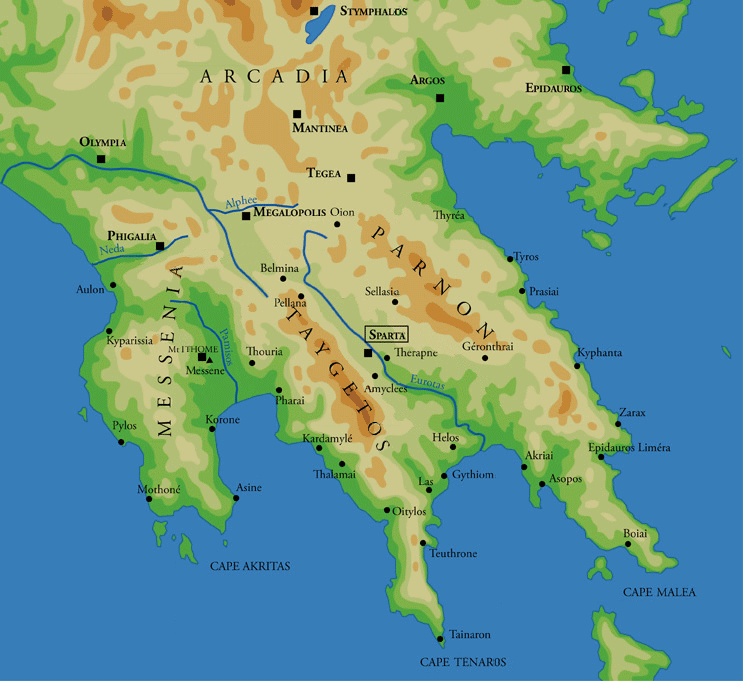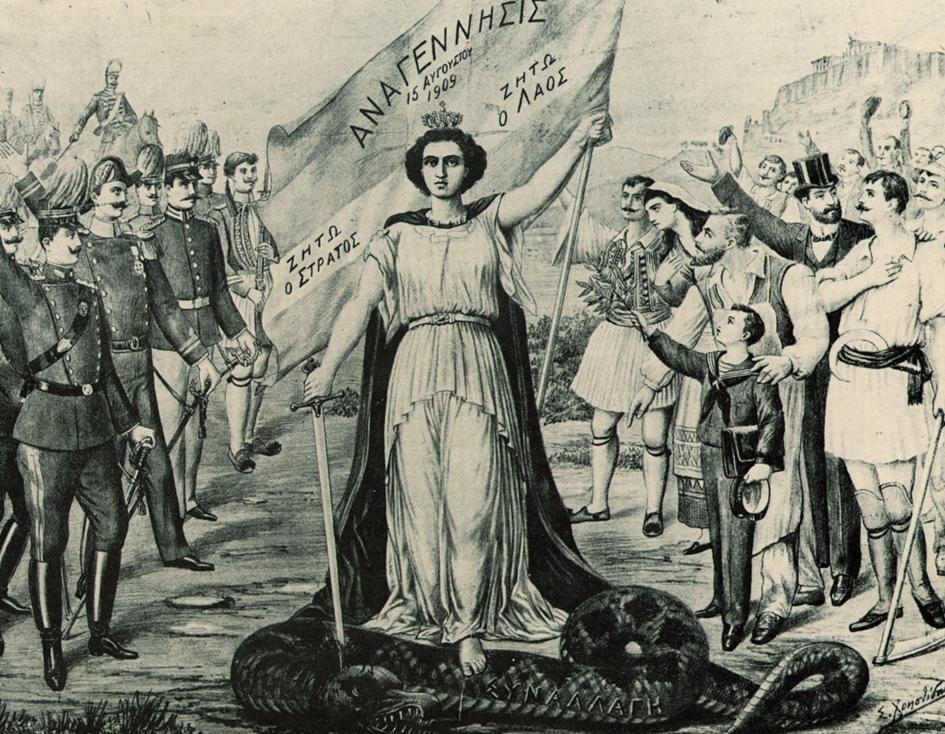|
Alexandros Othonaios
Alexandros Othonaios ( el, Αλέξανδρος Οθωναίος, Gytheio, 1879 – Athens, 20 September 1970) was a distinguished Greek general, who became briefly the acting Prime Minister of Greece, heading an emergency government during an abortive coup in 1933. Early life and career Othonaios was born at Gytheion in 1879, and enrolled in the Hellenic Military Academy. He participated in the Macedonian Struggle with the ''nom de guerre'' of ''Kapetan'' Palamidis, and was a member of the Military League. He fought in the Balkan Wars, and sided with Eleftherios Venizelos during the National Schism, commanding the 7th Cretan Regiment in the Macedonian front of World War I. He also took part in the Allied intervention in the Russian Civil War in 1919 with the rank of Colonel. Subsequently, he was appointed Commanding Officer of the Kydoniai Division and participated in the occupation of the Smyrna district in the early stages of the Asia Minor Campaign. After the electoral defe ... [...More Info...] [...Related Items...] OR: [Wikipedia] [Google] [Baidu] |
Gytheio
Gytheio ( el, Γύθειο, ) or Gythio, also the ancient Gythium or Gytheion ( grc, Γύθειον), is a town on the eastern shore of the Mani Peninsula, and a former municipality in Laconia, Peloponnese, Greece. Since the 2011 local government reform it is part of the municipality East Mani, of which it is a municipal unit. The municipal unit has an area of 197.313 km2. It was the seaport of Sparta, some north. Gytheio is the site of ancient Cranae, a tiny island where according to legend Paris of Troy and Helen from Sparta spent their first night together before departing for Troy, thus igniting the Trojan War. Gytheio used to be an important port until it was destroyed in 4th century AD, possibly by an earthquake. Even thereafter its strategic location gave Gytheio a significant role in Maniot history. Today it is the largest and most important town in Mani. It is also the seat of the municipality of East Mani. Historical population Geography Gytheio is located ... [...More Info...] [...Related Items...] OR: [Wikipedia] [Google] [Baidu] |
Hellenic Military Academy
The Hellenic Army Academy ( el, Στρατιωτική Σχολή Ευελπίδων), commonly known as the Evelpidon, is a military academy. It is the Officer cadet school of the Greek Army and the oldest third-level educational institution in Greece. It was founded in 1828 in Nafplio by Ioannis Kapodistrias, the first governor of the modern Greek state. Overview The institution was created to provide officers for all the Arms of the Hellenic Army (Infantry, Armour, Artillery, Signals, Engineering, and Army Aviation), as well as some of the Corps (the Technical Corps, the Transport and Supply Corps, and the Ordnance Corps). By contrast, officers in the Legal Corps, the Medical Corps, the Finance Corps, and the Auditing Corps are graduates of the Corps Officers Military Academy (), with the exception of nurse officers in the Medical Corps, who are graduates of the Nurse Officer Academy (). The School also trains cadets on behalf of foreign allied countries. The origin of the de ... [...More Info...] [...Related Items...] OR: [Wikipedia] [Google] [Baidu] |
1920 Greek Legislative Election
Parliamentary elections were held in Greece on Sunday, 14 November 1920,John S. Koliopoulos and Thanos M. Veremis (2010''Modern Greece: A History since 1821''Wiley-Blackwell, p87 or 1 November 1920 old style. They were possibly the most crucial elections in the modern history of Greece, influencing not only the few years afterwards, including the Greek defeat by Kemal Atatürk's reformed Turkish Land Forces in 1922, but setting the stage for Greece's political landscape for most of the rest of the 20th century. It had been nearly five years since the last elections, a period during which all democratic procedures were suspended due to the National Schism, when Prime Minister Eleftherios Venizelos announced that elections would take place on 25 October. However, after the unexpected death of King Alexander, who had assumed the throne after the exile of his father, King Constantine I, the elections were postponed until 14 November. Venizelos believed a victory for his Liberal Pa ... [...More Info...] [...Related Items...] OR: [Wikipedia] [Google] [Baidu] |
Greco-Turkish War (1919-1922)
{{Disambiguation ...
There have been several Greco-Turkish Wars: *Greek War of Independence (1821–1830), against the Ottoman Empire *Undeclared war in 1854 during the Crimean War, with Greek irregulars invading Ottoman Epirus (Epirus Revolt of 1854) and Thessaly * First Greco-Turkish War (1897) *Greek front of the First Balkan War (1912–13) * Second Greco-Turkish War (1919–1922), also called the ''Asia Minor Campaign'' or the ''Western Front'' of the Turkish War of Independence This term may also refer to the medieval predecessor civilisations of Greece and Turkey: * Byzantine–Seljuk wars * Byzantine–Ottoman wars See also *Aegean dispute *Greece–Turkey relations *Turkish invasion of Cyprus The Turkish invasion of Cyprus began on 20 July 1974 and progressed in two phases over the following month. Taking place upon a background of Cypriot intercommunal violence, intercommunal violence between Greek Cypriots, Greek and Turkish ... [...More Info...] [...Related Items...] OR: [Wikipedia] [Google] [Baidu] |
Macedonian Front
The Macedonian front, also known as the Salonica front (after Thessaloniki), was a military theatre of World War I formed as a result of an attempt by the Allied Powers to aid Serbia, in the autumn of 1915, against the combined attack of Germany, Austria-Hungary and Bulgaria during World War I, Bulgaria. The expedition came too late and in insufficient force to prevent the fall of Serbia, and was complicated by the internal political crisis in Kingdom of Greece, Greece (the "National Schism"). Eventually, a stable front was established, running from the Albanian Adriatic Sea, Adriatic coast to the Struma River, pitting a Allied Army of the Orient, multinational Allied force against the Bulgarian Army, which was at various times bolstered with smaller units from the other Central Powers. The Macedonian front remained quite stable, despite local actions, Vardar offensive, until the great Allied offensive in September 1918, which resulted in the capitulation of Bulgaria and the libe ... [...More Info...] [...Related Items...] OR: [Wikipedia] [Google] [Baidu] |
7th Cretan Regiment
7 (seven) is the natural number following 6 and preceding 8. It is the only prime number preceding a cube. As an early prime number in the series of positive integers, the number seven has greatly symbolic associations in religion, mythology, superstition and philosophy. The seven Classical planets resulted in seven being the number of days in a week. It is often considered lucky in Western culture and is often seen as highly symbolic. Unlike Western culture, in Vietnamese culture, the number seven is sometimes considered unlucky. It is the first natural number whose pronunciation contains more than one syllable. Evolution of the Arabic digit In the beginning, Indians wrote 7 more or less in one stroke as a curve that looks like an uppercase vertically inverted. The western Ghubar Arabs' main contribution was to make the longer line diagonal rather than straight, though they showed some tendencies to making the digit more rectilinear. The eastern Arabs developed the digit fr ... [...More Info...] [...Related Items...] OR: [Wikipedia] [Google] [Baidu] |
National Schism
The National Schism ( el, Εθνικός Διχασμός, Ethnikós Dichasmós), also sometimes called The Great Division, was a series of disagreements between Constantine I of Greece, King Constantine I and Prime Minister Eleftherios Venizelos regarding the foreign policy of Kingdom of Greece, Greece in the period of 1910–1922 of which the tipping point was whether Greece should enter World War I. Venizelos was in support of the Allies of World War I, Allies and wanted Greece to join the war on their side, while the pro-German Empire, German King wanted Greece to remain neutral, which would favor the plans of the Central Powers. The disagreement had wider implications, since it would also affect the character and role of the king in the state. The dismissal of Venizelos by the King resulted in a deep personal rift between the two and in subsequent events their followers divided into two radically opposed political camps affecting the wider Greek society. After Kingdom of B ... [...More Info...] [...Related Items...] OR: [Wikipedia] [Google] [Baidu] |
Eleftherios Venizelos
Eleftherios Kyriakou Venizelos ( el, Ελευθέριος Κυριάκου Βενιζέλος, translit=Elefthérios Kyriákou Venizélos, ; – 18 March 1936) was a Greek statesman and a prominent leader of the Greek national liberation movement. He is noted for his contribution to the expansion of Greece and promotion of liberal-democratic policies.Kitromilides, 2006, p. 178"Liberty Still Rules" '''', 18 February 1924. As leader of the , he held office as |
Military League
The Goudi coup ( el, κίνημα στο Γουδί) was a military coup d'état that took place in Greece on the night of , starting at the barracks in Goudi, a neighborhood on the eastern outskirts of Athens. The coup was a pivotal event in modern Greek history, as it led to the arrival of Eleftherios Venizelos in Greece and his eventual appointment as Prime Minister. At one stroke, this put an end to the old political system, and ushered in a new period. Henceforth and for several decades, Greek political life would be dominated by two opposing forces: liberal, republican Venizelism and conservative, monarchist anti-Venizelism. The coup itself was the result of simmering tensions in Greek society, which reeled under the effects of the disastrous Greco-Turkish War of 1897, financial troubles, a lack of necessary reforms and disillusionment with the established political system. Emulating the Young Turks, several junior Army officers founded a secret society, the Military Lea ... [...More Info...] [...Related Items...] OR: [Wikipedia] [Google] [Baidu] |
Nom De Guerre
A pseudonym (; ) or alias () is a fictitious name that a person or group assumes for a particular purpose, which differs from their original or true name (orthonym). This also differs from a new name that entirely or legally replaces an individual's own. Many pseudonym holders use pseudonyms because they wish to remain anonymous, but anonymity is difficult to achieve and often fraught with legal issues. Scope Pseudonyms include stage names, user names, ring names, pen names, aliases, superhero or villain identities and code names, gamer identifications, and regnal names of emperors, popes, and other monarchs. In some cases, it may also include nicknames. Historically, they have sometimes taken the form of anagrams, Graecisms, and Latinisations. Pseudonyms should not be confused with new names that replace old ones and become the individual's full-time name. Pseudonyms are "part-time" names, used only in certain contexts – to provide a more clear-cut separation between one's ... [...More Info...] [...Related Items...] OR: [Wikipedia] [Google] [Baidu] |




